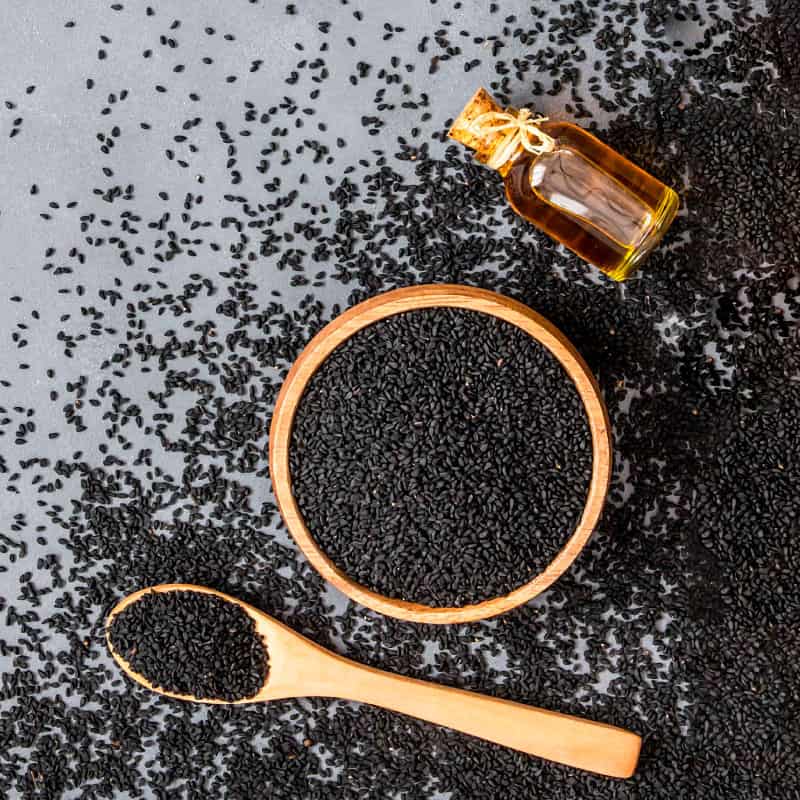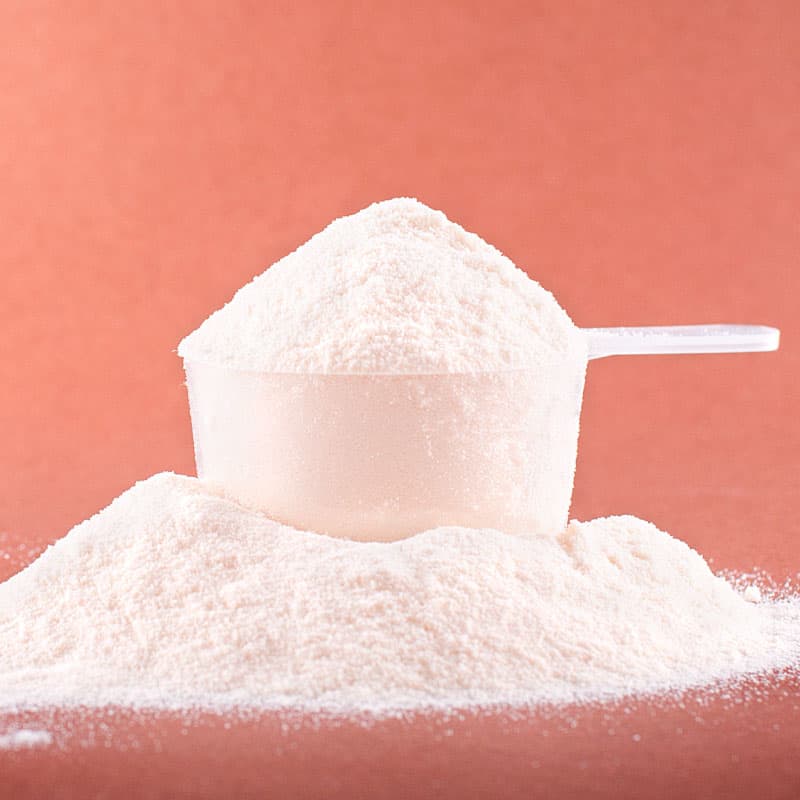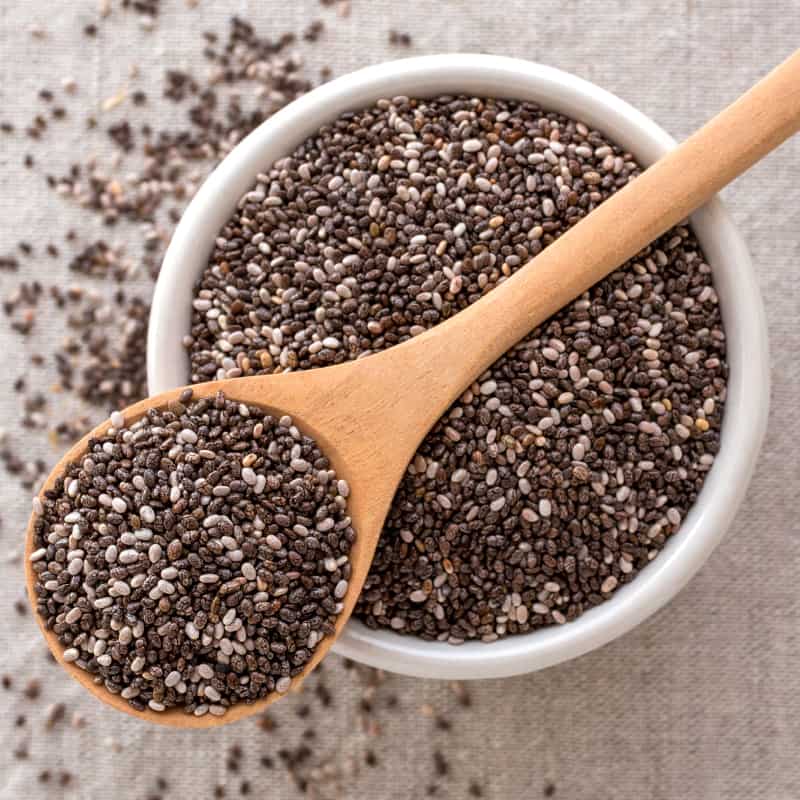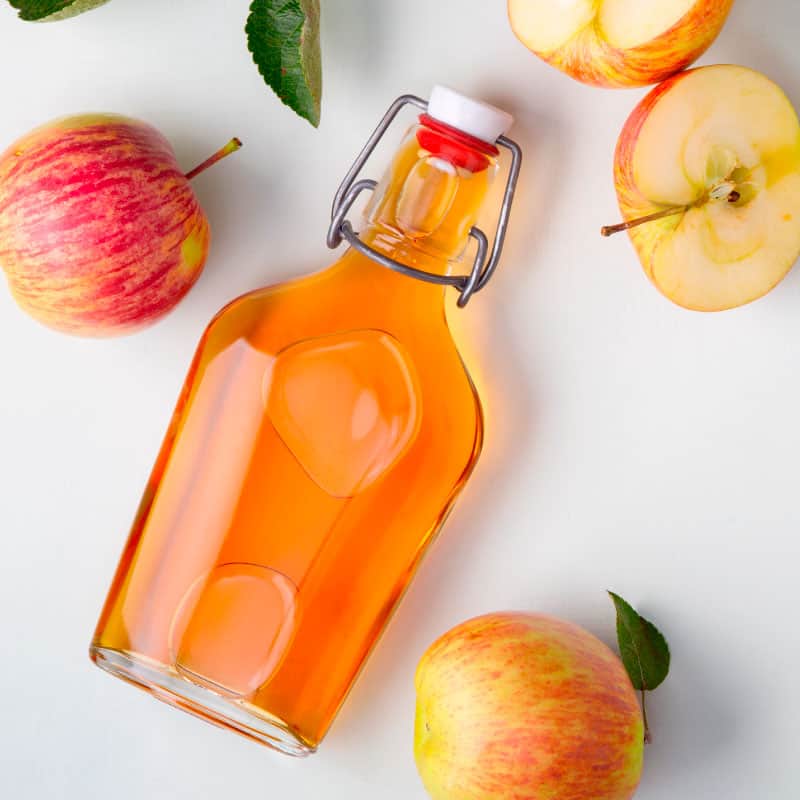This Dr. Axe content is medically reviewed or fact checked to ensure factually accurate information.
With strict editorial sourcing guidelines, we only link to academic research institutions, reputable media sites and, when research is available, medically peer-reviewed studies. Note that the numbers in parentheses (1, 2, etc.) are clickable links to these studies.
The information in our articles is NOT intended to replace a one-on-one relationship with a qualified health care professional and is not intended as medical advice.
This article is based on scientific evidence, written by experts and fact checked by our trained editorial staff. Note that the numbers in parentheses (1, 2, etc.) are clickable links to medically peer-reviewed studies.
Our team includes licensed nutritionists and dietitians, certified health education specialists, as well as certified strength and conditioning specialists, personal trainers and corrective exercise specialists. Our team aims to be not only thorough with its research, but also objective and unbiased.
The information in our articles is NOT intended to replace a one-on-one relationship with a qualified health care professional and is not intended as medical advice.
Black Cohosh: Herbal Relief for Menopause, Pain & Anxiety
March 8, 2023
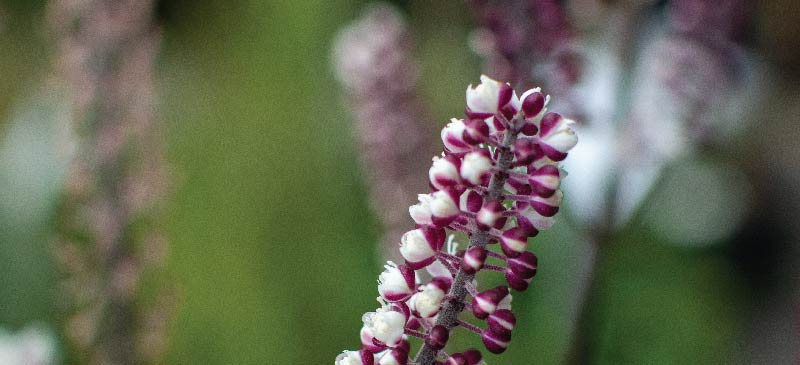
With research revealing potential dangers of Hormone Replacement Therapy (HRT) in treating hormonal issues, health-conscious women are looking elsewhere for safer, natural treatments for problems like menopause symptoms. One option is black cohosh, a herbal remedy that studies indicate can relieve symptoms of menopause, as well as other hormonal problems too.
Black cohosh, which gets its name from the plant’s black roots, is a member of the buttercup family and native to parts of North America. The roots and rhizomes of this plant have been used as a folk medicine for centuries to treat pain, anxiety, inflammation, malaria, rheumatism, uterine issues, and many other disorders.
What Is Black Cohosh?
The black cohosh plant, also known scientifically as Actaea racemosa (or Cimicifuga racemosa) is a member of the plant family called Ranunculaceae. This herb goes by several different nicknames, including “black bugbane,” “black snakeroot” and “fairy candle.” Although it has many applications, it’s most often used to manage symptoms associated with menopause.
The underground parts of the plant, the roots and rhizomes, are the sections used for medicinal purposes. They are made up of glycosides (sugar compounds), isoferulic acids (anti-inflammatory substances), and (possibly) phytoestrogens (plant-based estrogens), as well as other active substances.
The specific preparation black cohosh supplements affects which symptoms they are capable of treating. One such manufacturer, Remifemin, is one of the most researched compounds in the reduction of hot flashes caused by menopause.
What does black cohosh do for your body? Does black cohosh increase estrogen? Whether it can increase estrogen levels is debatable, as studies have come to mixed conclusions. Some research suggests this herb may have estrogenic activity, but other studies have shown that it appears not to.
The mechanisms by which this herb works are still somewhat unknown. There are several hypotheses about its effects, including that it acts as a selective estrogen receptor modulator, that it affects serotonergic pathways, and that it acts as an antioxidant and impacts inflammatory pathways.
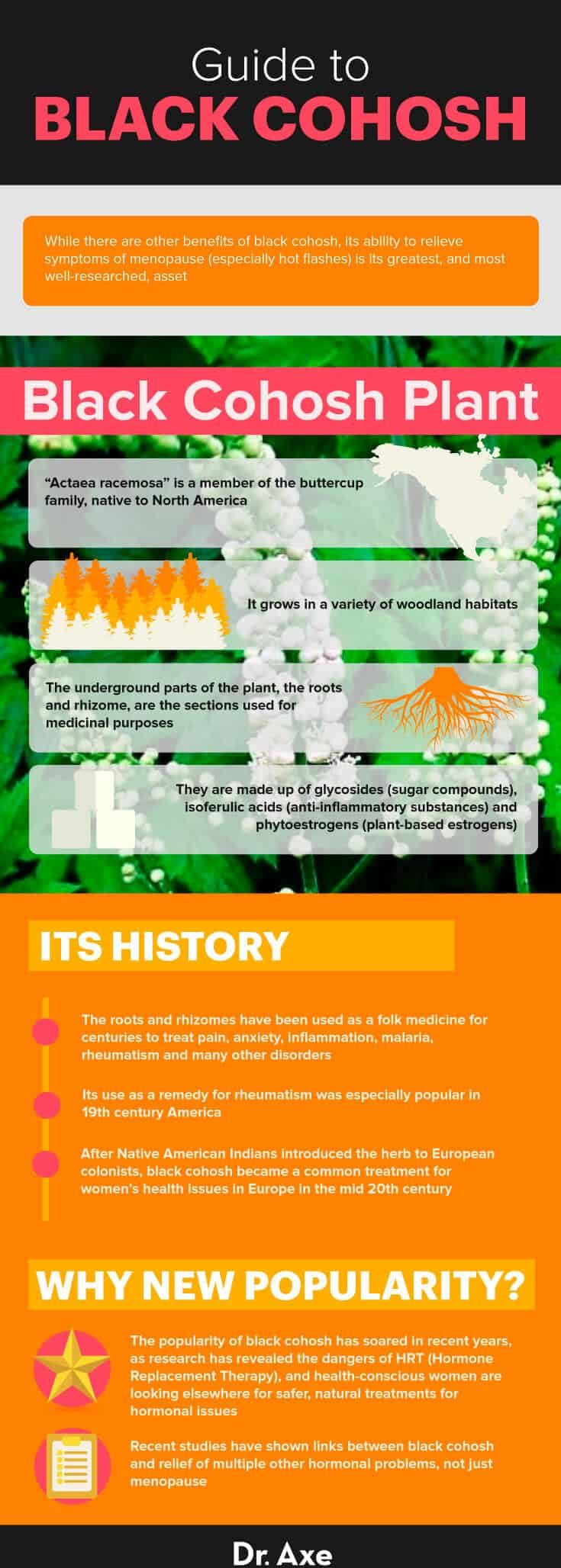
Benefits
1. May Help Reduce Menopause Symptoms Including Hot Flashes
A great number of studies have focused on use of black cohosh for managing menopause symptoms, especially hot flashes. While some research is inconclusive, this is generally due to the fact that many studies have rated symptoms on a scale, rather comparing it to a placebo. In addition, the specific compounds and dosages of the supplement have been inconsistent in many studies.
While findings have been mixed, many feel there is little doubt that black cohosh is a natural remedy for menopause relief. Certain systematic reviews and studies have found that taking it regularly typically reduces the number and severity of negative symptoms that often overwhelm women with hormone problems.
And there’s more good news: menopausal women aren’t the only ones who suffer from issues like hot flashes. Breast cancer survivors who have completed treatment have shown a decrease in symptoms like sweating when using black cohosh. A current study is also examining the management of flashes in men who have had treatment for prostate cancer.
2. Can Reduce Sleep Disturbances
One factor that worsens other symptoms of menopause is the sleep disturbance that often accompanies this transition. Sleep is vital to balancing hormones naturally, as lack of sleep or insomnia disturbs hormone production and management, even in normal periods of life.
A recent medical trial for postmenopausal women with sleep complaints found that supplementing their diet with black cohosh effectively improved sleep. Avoiding sleep deprivation may lead to many other benefits, such as help with weight loss, mood stabilization, increased energy levels and more.
3. Promising for Treatment of Diabetes
A breakthrough study recently showed positive impact of black cohosh extract on type II diabetes. While this was a pilot study, the results indicated that the extract called Ze 450 may help reduce body weight and improve the processing of insulin within the body of a diabetic patient.
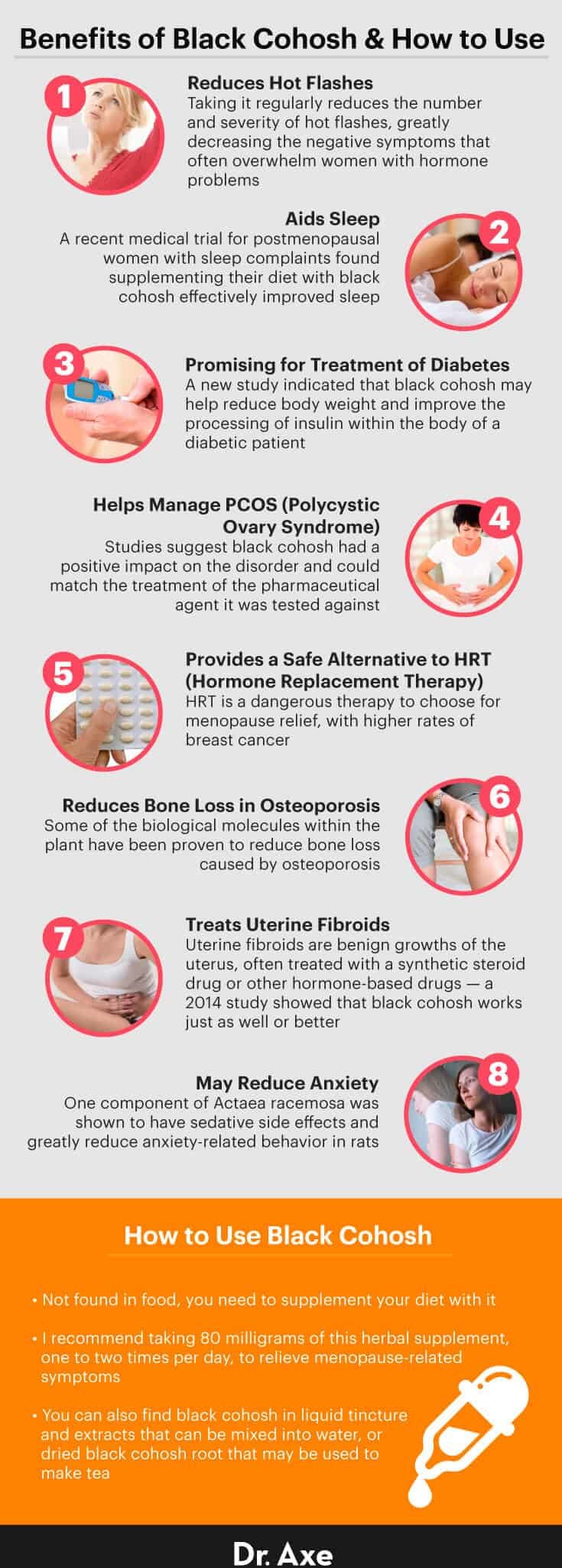
4. May Help Manage PCOS
Maybe related to its effects in potentially treating diabetes, black cohosh has also been studied regarding polycystic ovary syndrome. Initial results suggest this herb has a positive impact on the disorder and could match the treatment of pharmaceutical agents it has been tested against.
5. Can Provide a Safe Alternative to HRT
Hormone Replacement Therapy may potentially be a dangerous option for menopause relief, possibly by increasing the risk for development of breast cancer in women when used for over 10 years. This is why many women and practitioners like the idea of an alternative options.
A 2022 review noted that “Although the effectiveness of [black cohosh] extract is comparatively lesser than that of the well-established commercially available HRT, it is a safer and hormone-free remedy for postmenopausal syndrome.”
There are several safe, natural remedies for menopause relief, and black cohosh is considered an important item on that list.
6. May Reduce Bone Loss/Osteoporosis
Most plants, including black cohosh, contain organic compounds with biological activity. In the tissues and organs of Actaea racemosa, there is evidence of phytoestrogens (plant-derived estrogens).
In addition, some of the biological molecules within the plant have been shown to reduce bone loss caused by osteoporosis. One particular molecular compound (deemed ACCX) has presented an encouraging lead in a new class of treatment for osteoporosis.
7. Can Help Treat Uterine Fibroids
Uterine fibroids are benign growths of the uterus, often appearing during years where a woman’s fertility is at its peak. In countries outside of the United States, these are often treated with a synthetic steroid drug called Tibolone. Inside the U.S., various other hormone-based drugs are commonly used.
A 2014 study compared the use of Tibolone to black cohosh to treat these fibroids and found that the extract of Actaea racemosa tested was actually more appropriate than the synthetic alternative to treat uterine fibroids.
By treating fibroids, this herb may also help reduce PMS symptoms, such as menstrual cramps, as well as heavy, painful periods.
8. May Reduce Anxiety
One historic use of this herb was treatment of anxiety and depression. While it has long been considered nothing more than a false remedy, recent research has proposed that it may have a significant impact on anxiety symptoms.
Animal studies have demonstrated that one cycloartane glycoside compound in Actaea racemosa seems to have sedative, anti-anxiety effects in rats due to its impact on GABA receptors.
Interesting Facts
The spread of black cohosh across Europe took place after Native American Indians introduced the herb to European colonists. It became a common treatment for women’s health issues in Europe in the mid-20th century. Traditional Chinese Medicine also shows record of the use of black cohosh to serve as an anti-inflammatory and painkiller.
One of its nicknames, “Bugbane,” was coined because of its use as an insect repellent, though it’s no longer used for that purpose. Another, “snakeroot,” was derived from the habit of frontiersmen using it to treat rattlesnake bites. Its efficacy against snake bites has never been tested by modern researchers, but it’s an interesting theory.
Be careful not to confuse black cohosh with its sister plants, blue cohosh and white cohosh. These plants are similar in structure, but don’t have the same effects and may be dangerous to ingest.
How to Use
Black cohosh isn’t found in any food products. Therefore, to supplement your diet with it, you’ll need to take an herbal supplement — whether in pill, extract or tea form. It’s important to buy herbal preparations from reputable sources who ensure that their products are pure, as consuming tainted ingredients and additives may possibly lead to side effects.
In addition to supplements in capsules and tablets, you can find black cohosh in liquid tincture and extract form, which can be mixed with water. Black cohosh is often combined with other herbs, such as vitex or dong quai, for maximum benefits.
The dried roots of this herb can also be used to make black cohosh tea.
How much should you take?
- Proper dosages have been debated for some years, but a general recommendation is to take between 40 and 80 milligrams per day of a standardized extract. This is typical dosage used to relieve menopause-related symptoms.
- How much black cohosh should you take for hot flashes? In extract form, start with a dosage between 20 and 40 milligrams, taken twice daily, and increase if needed.
- The most common brand of preparation, Remifemin, contains 20 milligrams per tablet, which means you may need to take several tablets per day.
- If using a tincture, take the amount that equals 2 to 4 ml. This amount can be taken 1 to 3 times per day, mixed in water or tea.
- Herbal teas are not always as effective in relieving menopausal symptoms as standardized extracts. However if you prefer to drink black cohosh tea, you can make your own by steeping 20 grams of dried root in 34 oz of water. Bring to a boil and then simmer 20 to 30 minutes until the liquid is reduced.
How long can you take black cohosh?
Organizations including the American College of Obstetrics and Gynecology recommend taking black cohosh for six months or less. It’s suggested to inform your doctor if you plan to take this supplement for more than six months consecutively.
Keep in mind that it may take several weeks for you to notice improvements in symptoms once you start supplementing. It’s typical for maximum effects to occur within 8 weeks of use.
Side Effects
What are the side effects of black cohosh? A few side effects may exist, though they seem to be relatively uncommon according to most research. Some people taking this herb have complained of stomach discomfort, headaches, seizures, diarrhea, nausea and vomiting, constipation, low blood pressure, and weight problems. Many of these complaints may be due to mis-identification of black cohosh in the wild by certain manufacturers.
One potential side effect that has been consistently linked to black cohosh consumption is a negative effect on the liver. While there is still no concrete evidence that this herb leads to liver toxicity, you should consult your primary care physician about consuming this supplement along with other medications or supplements that may be linked to liver damage, or if you already suffer from liver disease.
If you develop symptoms of liver illness while taking black cohosh (e.g., abdominal pain, dark urine, or jaundice), discontinue use immediately and contact your doctor.
There’s some concern that this herb may be dangerous for women going through treatment for breast or uterine cancer, due to its estrogen-mimicking effects. Therefore women who have had these types of cancers or endometriosis should avoid using this herb unless working with a doctor.
Until further research can be completed, you should also not take black cohosh while you are pregnant or nursing, as the effects on fetuses and newborns have not been determined.
This herb has been reported in some instances to have certain drug interactions, including with birth control pills, hormone replacement therapy, sedatives and blood pressure medicines. It’s a good idea to discuss use of herbs with your doctor if you’re taking medications regularly.
Final Thoughts
- Black cohosh (Actaea racemosa or Cimicifuga racemosa) is an herb that’s used to make tablets, extracts and teas. It’s most commonly taken to manage menopause symptoms, pain, anxiety and trouble sleeping.
- Most research has focused on using this herb for treatment of menopausal symptoms like hot flashes and insomnia. Overall, study results have been mixed, but there’s evidence suggesting it can provide relief with minimal side effects.
- A typical black cohosh dosage is between 40 and 80 milligrams per day in extract form.
- Side effects are uncommon but may include digestive issues, headaches, low blood pressure and potentially liver problems. It shouldn’t be taken while pregnant or breastfeeding, or by women with a history of breast or uterine cancer or endometriosis.






